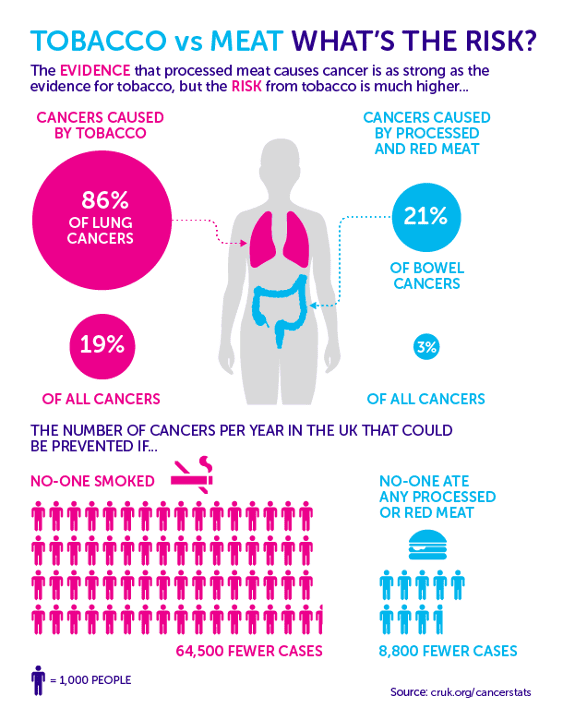According to the "Meat and tobacco: the difference between risk and strength of evidence" in the Guardian, "The headlines are referring to the news that the World Health Organization has classified cured and processed meats (bacon, salami, sausages, ham) as group 1 carcinogens, because there is a causal link between consuming these meats and bowel cancer. This group also includes tobacco, alcohol, arsenic and asbestos, all known to cause certain cancers." So, It causes a lot of panics; the medias are spread the news repetitively. Then the topic in the article leads to the official media announcement in form of infographic from the health organization which is Cancer Research UK or CRUK. They give us a lot of numerical facts; moreover, the common information about how we read a scientific evidence is also provided in a very beautiful and interesting way which you can follow here. That is very civilized way to cope with the mass who are frightened by a scientific fact that can be misunderstood easily and may have a numerous impact to many industry.
 |
| CRUK’s infographic comparing tobacco and processed meat in terms of cancer risk Photograph: Cancer Research UK |
Anyway, those who don't care just enjoy their favorite dish happily, besides those who anxious always concern about their food and tend to be vegetarians or very choosy about food selection. Maybe not many people will change their behaviours by just listening to the news. We always live that way and have many excuses to confirm ourselves to find the happiness, especially our favourite dishes.
My question is:
Would you stop eating your favourite dish if the scientific evidence or the doctor says that it's bad for your health?
___________
References
Dunlop, C. (2015, October 26) Processed meat and cancer – what you need to know. Cancer Research UK. Retrieved from http://scienceblog.cancerresearchuk.org/2015/10/26/processed-meat-and-cancer-what-you-need-to-know/





























